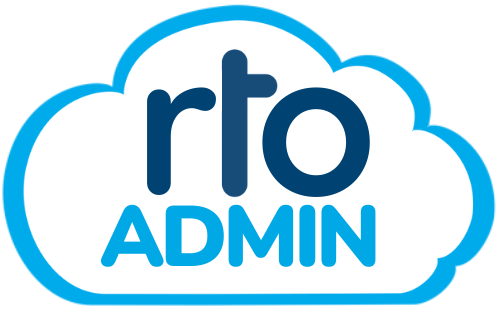Have you considered how different types of training might impact your career or personal development? In today’s rapidly changing professional landscape, the availability of various training options can play a crucial role in shaping your future. Understanding the distinctions between accredited and non-Accredited training programs is essential when plotting your educational path.

Understanding Accredited Training
Accredited training programs are those recognized officially by educational or professional institutions. They are designed to meet specific standards and criteria set by accrediting bodies. Such programs are widespread and often essential for certain career paths, providing a formal qualification that is required or valued by employers.
Characteristics of Accredited Training
Accredited training programs share several distinct characteristics. They typically involve a curriculum that adheres to predetermined guidelines and standards. This ensures a level of uniformity and quality across similar courses, which is why employers often require these qualifications.
| Feature | Description |
|---|---|
| Recognition | Officially recognized by educational or professional institutions. |
| Standards | Must meet certain criteria and quality standards set by accrediting bodies. |
| Qualification | Provides formal qualifications often essential for specific careers. |
| Funding | May be necessary for obtaining government funding or financial aid. |
Importance in Career Trajectories
Formal accreditation is pivotal in many professional spheres. Jobs in healthcare, law, engineering, and education, among others, typically require certified qualifications. These credentials assure employers of a candidate’s capability and adherence to industry standards.
Understanding Non-Accredited Training
Non-accredited training, on the other hand, is not officially recognized by formal accrediting organizations. These programs are generally more flexible and cater to improving practical knowledge and specific skill sets. They often appeal to those seeking personal development or supplementary expertise for career enhancement rather than formal qualifications.
Characteristics of Non-Accredited Training
Non-accredited solutions offer a diverse array of learning opportunities that prioritize adaptability and customization. This kind of training can be an ideal choice for individuals who seek more control over what they learn and how they learn it.
| Feature | Description |
|---|---|
| Recognition | Not officially recognized by formal accrediting bodies. |
| Focus | Emphasizes skill-building and practical knowledge over formal qualifications. |
| Flexibility | Offers more flexibility in terms of content and structure. |
| Usefulness | Useful for personal development or enhancing one’s career. |
Role in Personal Development
This type of training can be particularly beneficial for those aiming to upgrade specific skills, stay abreast of industry trends, or explore new areas of interest without the constraints of formal assessment methods. Often, non-accredited training can be your stepping stone to honing expertise which is immediately applicable to a job or personal project.
Choosing Between Accredited and Non-Accredited Training
Choosing the right type of training for your needs involves considering multiple factors like career goals, personal development objectives, and lifestyle preferences. While accredited training provides a structured and standardized path, non-accredited options offer flexibility tailored to individual learning styles and outcomes.
Assessing Your End Goal
Begin with considering what you expect from your training. Is it a formal credential to secure a specific job, or is it more about personal enrichment and skill acquisition? Your end goal should guide you in selecting a program type that aligns with your future plans.
Necessity of Formal Credentials
Determine if your chosen career pathway necessitates formal credentials. If working in sectors such as healthcare or education, accredited training is often indispensable. In contrast, roles in fast-evolving tech industries or creative fields may value practical skills showcased through a portfolio more than formal qualifications.
Balancing Flexibility with Credential Requirements
When weighing the decision, consider your needs for flexibility against credential requirements. Non-accredited training can offer a perfect blend for those who must balance professional development with current occupational or personal responsibilities.
Consideration of Personal Learning Preferences
Reflect on how you learn best. Accredited training typically involves structured schedules and exams, while non-accredited options might involve self-paced learning, online modules, or workshops. Selecting a mode that suits your learning style can enhance comprehension and application effectively.
Advantages of Non-Accredited Training
Despite not providing recognized certifications, non-accredited training offers several advantages. It allows learners to gain practical insight into new skills and niches without heavy financial or time investments typically associated with formal education.
Cost-Effectiveness
These programs are often more affordable than their accredited counterparts, which makes them accessible to a broader audience. People with restrictive budgets can benefit significantly, enhancing their skills without the financial burden of accredited coursework.
Accessibility and Diverse Offerings
The diverse offerings make it easy for learners to find courses that match their specific interests or the needs of their current job roles. Due to its flexible nature, non-accredited training removes geographical and financial barriers, enabling anyone with an internet connection to access vast pools of knowledge.
Rapid Adaptability to Market Needs
The unregulated nature of non-accredited programs allows them to swiftly adapt content and delivery methods to meet changing market demands. This feature enables participants to stay current within their industries and gain competitive edges.
Building a Diverse Skill Set
For those looking to pivot careers or expand their current expertise, non-accredited training options provide the opportunity to build a diverse set of skills. By exploring varied subjects, learners can incorporate interdisciplinary practices into their primary fields of work, thereby enhancing innovation and problem-solving abilities.
Integrating Both Types of Training
In an ideal scenario, you may find benefit from integrating both accredited and non-accredited training into your professional plan. Such an integration can allow you to achieve a comprehensive and agile skill set navigated towards your career and personal objectives.
Mapping a Long-term Educational Path
Charting out a multi-faceted educational plan that incorporates both types of training can offer numerous benefits. Start with accredited courses to secure necessary qualifications, and then augment your expertise with targeted non-accredited modules that address skill gaps or ignite your personal interests.
Leveraging Each Type’s Strengths
By recognizing the strengths of each type of training, you can strategically choose when and how to utilize them. As formal qualifications provide industry credibility, informal trainings enrich your adaptability and updated competencies in a changing marketplace.
Utilizing Technology and Online Platforms
Modern technology empowers you with easy access to a myriad of learning platforms. Use online resources to mix accredited e-learning with flexible non-accredited courses, thus optimizing the convenience, cost, and comprehensive learning experience.
Conclusion
Training and education are powerful tools for professional development and personal enrichment. While accredited training paves paths towards recognized qualifications and career assurance, non-accredited options deliver flexibility and practical expertise necessary in today’s dynamic world. By understanding their distinctions and uniquely configuring them to your personal and professional goals, you retain control over your educational journey, ultimately advancing knowledge, skills, and career outcomes.
In strategically choosing between and integrating both forms of training, you allow yourself a tailored approach conducive to lifelong learning and adaptability—key traits in the modern workforce.



